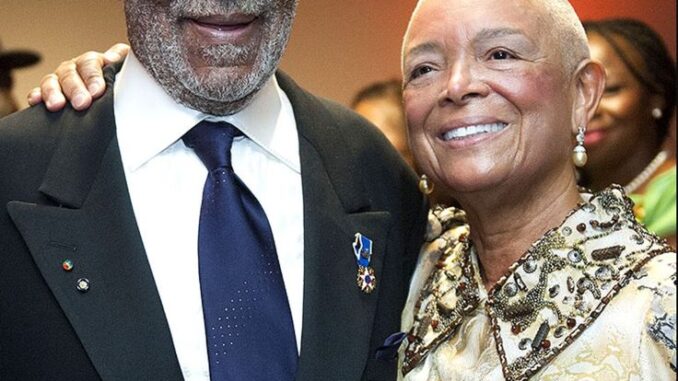
While The Cosby Show remains one of the most iconic TV shows of the 1980s, its legacy has become increasingly complicated in light of Bill Cosby’s criminal conviction. Initially celebrated for its portrayal of a successful Black family and its groundbreaking role in primetime television, the show has also faced significant criticism over the years. Here’s why The Cosby Show was criticized, both during its run and in the years that followed:
1. The Fall of Bill Cosby: The Shadow Over the Show
At the peak of The Cosby Show’s success, Bill Cosby was celebrated as a beloved figure in American entertainment. He played Dr. Heathcliff Huxtable, a loving father, doctor, and husband—an image of an ideal African American family that was groundbreaking at the time. However, after multiple women came forward accusing Cosby of sexual assault, the show’s image became tainted. Cosby’s conviction in 2018 for drugging and sexually assaulting Andrea Constand, along with the growing number of accusers, cast a dark shadow over the show’s cheerful facade.
2. The Question of Separating the Art from the Artist
One of the most significant criticisms revolves around the complex question of whether it is possible to separate an artist’s personal life from their creative work. For many fans, The Cosby Show had a profound cultural impact, offering a positive portrayal of an African American family that defied negative stereotypes commonly seen on television. However, as Cosby’s criminal actions came to light, some viewers felt betrayed by the gap between the man they admired on screen and the person he was in real life. This led to a broader cultural debate about the ethical implications of continuing to celebrate the work of individuals accused or convicted of serious wrongdoing.
3. Representation and Responsibility
Although The Cosby Show was groundbreaking in its portrayal of Black success and family life, some critics argue that it did not fully reflect the diversity of the African American experience. The Huxtables, while loving and affluent, were often seen as an idealized, almost too-perfect representation of Black America—one that did not address the struggles many Black families faced, particularly in terms of economic inequality and systemic racism. This led to critiques that the show, while groundbreaking, presented an unrealistic portrayal that did not necessarily reflect the realities of the Black community at large.
4. The Ethical Dilemma for Fans
For many, the success of The Cosby Show was a source of pride, particularly because it broke barriers for African American actors and showcased Black life in a way that had rarely been done on television before. But after the sexual assault allegations against Cosby, fans faced an ethical dilemma. Should they continue to enjoy the show knowing what Cosby had been accused of? Could they continue to separate the character of Dr. Huxtable from the man behind the role? The debate intensified as Cosby’s conviction became a reality, leading to questions about how to honor a show’s impact without condoning the actions of its creator.
5. The Impact of Cosby’s Conviction on the Show’s Legacy
In the years following Bill Cosby’s conviction, several networks pulled The Cosby Show from their schedules, and many people revisited their memories of the series. Some questioned whether the show still held the same cultural significance now that its creator was no longer seen as a role model. For many, the humor and warmth that made the show so beloved in the 1980s were overshadowed by the unsettling reality of Cosby’s criminal behavior.
A Complicated Legacy
The legacy of The Cosby Show is a complicated one. While it remains a landmark in television history for its positive portrayal of Black families, the show’s association with Cosby’s criminal actions has led to a reassessment of its cultural impact. For many, it’s no longer just a question of whether the show was groundbreaking—it’s also about whether it’s possible to continue celebrating the art in light of the artist’s darker truths. The criticisms surrounding The Cosby Show highlight a broader conversation about fame, accountability, and the sometimes painful realities of separating a show’s cultural value from its creator’s personal flaws.
In the end, The Cosby Show serves as both a reflection of its time and a reminder that even the most beloved cultural icons can fall from grace. The show’s legacy, like Cosby himself, is now irrevocably intertwined with controversy, leaving fans and critics alike to grapple with how to reconcile its impact with the moral complexities of its creator’s actions.